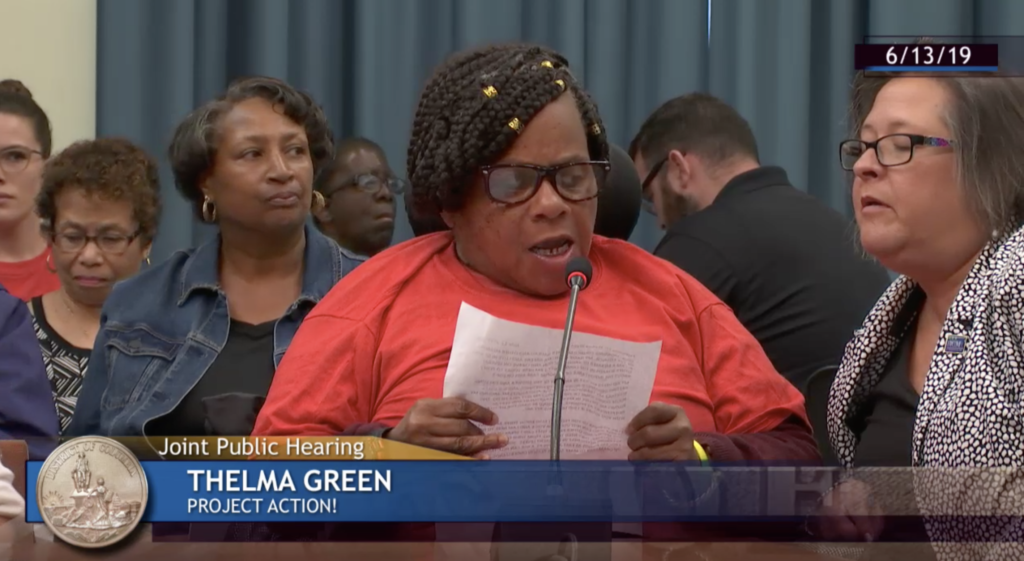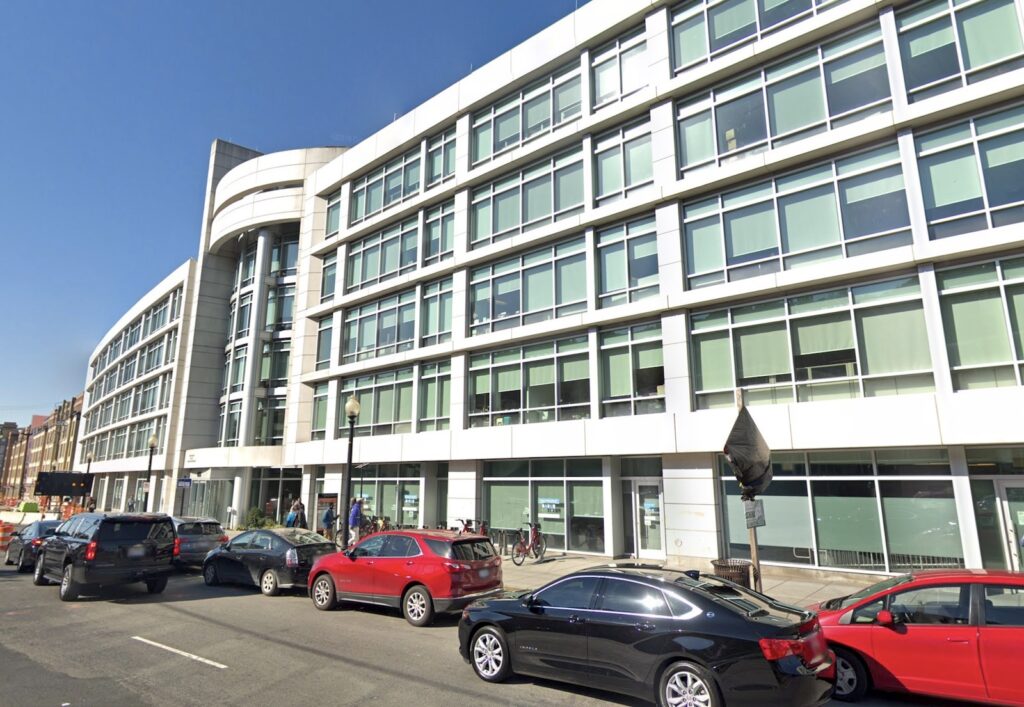Thelma Green said her direct support professional of 12 years helps her every day to get in and out of the shower, get dressed, and schedule transportation.
Green, who is a member of Project ACTION! — an organization for self-advocates and advocacy groups for people with disabilities — said her direct support professional helps her to live as independently as possible.
“I trust her, she is almost like family,” Green said at a public hearing in June before D.C. Council went on summer recess. “We need to respect the hard work they do.”
[Read more: Many testified to support a bill to increase pay for workers who assist people with disabilities]
Green, like almost 50 other people who testified at the hearing, is in support of the Direct Support Professional Payment Rate Act of 2019. Public witnesses said the bill would ensure that people with disabilities receive stable and quality care from an adequately paid workforce.
The bill would be the first District-wide push to set a higher minimum wage specific to direct support professionals. If passed, the bill would increase pay for more than 4,000 people.
The legislation was first introduced on March 20 by Councilmembers Brianne Nadeau, Vincent Gray, Elissa Silverman, and David Grosso. It was referred to the Committee on Human Services and the Committee on Health in April, according to D.C. Council’s website.
The councilmembers hosted one required public hearing, which was met with dozens of testimonies in support of the bill. The bill is slated to receive a vote this fall, but a specific date has yet to be determined, according to city officials.

Ward 1 Councilmember Brianne Nadeau said even after the D.C. minimum wage increased to $14 July 1 as part of a schedule to reach a $15 minimum wage by 2020, by the fall there will be no difference between a regular hourly wage job — like working in retail or fast food — and that of a direct support professional, a profession that requires hours of specialized training.
“Our concern is that we’ve seen a drop off in the workforce, and that there may not be enough people at this wage — at the wage that exists without this legislation — to retain the workforce that we need to serve individuals with disabilities,” she said. “And that’s a really big problem.”
Nadeau said the bill will establish a “tiered” system with three levels. At the first level, an individual would be making 110 percent of the minimum wage. They would earn 115 percent of the minimum wage at the second level and 125 percent at the third level.
The bill was first introduced at the end of last year but didn’t move forward because a public hearing wasn’t held. Nadeau said she helped to reintroduce the bill early this year and convened a working group for the legislation last year which included members of different government agencies, providers, staff from other council offices, and other stakeholders.
“I want to make sure that we’re recruiting the cream of the crop to these jobs, and one of the ways to do that is to ensure that they have good wages,” she said.
Next steps include a review from both her committee and the committee under Councilmember Gray.
Esme Grewal, the vice president of government relations for the American Network of Community Options and Resources, said the direct support professional workforce is currently struggling with high turnover and vacancy rates, which in turn makes it difficult to maintain a high quality of care for individuals with disabilities.
The national annual turnover rate for direct support professionals is about 45 percent, according to a report submitted to President Trump on the direct support workforce crisis in the United States. Grewal said high turnover means that service providers are frequently working to replace staff and provide consistent care to their clients.
“That is not only just problematic for any workforce, it’s particularly problematic for a workforce that provides life-line services to people with significant disabilities,” Grewal said.
Grewal said direct support professionals are typically paid no more than minimum wage. This makes it difficult for direct professionals to live near the people they serve if they are in the metro area, where the cost of living is more expensive.
Several public witnesses raised concerns about the cost of living in D.C. while working as a direct support professional. Deneen Miller, who works for My Own Place, said at the public hearing that it is difficult to live a “decent life” with the current salary for most direct support professionals. Similarly, Jade Manning, who works for one of the main providers of DSP assistance in D.C., RCM of Washington, said the current pay rate for direct support professionals in D.C. does not provide a “livable wage” to maintain a home in D.C. on top of the cost of childcare, car insurance, and health insurance.

Grewal said it is not uncommon in the United States for direct support professionals to work more than one job to adequately support themselves.
“We are not benefited when our workforce is required to have an additional job and not get that deserved rest from these demanding jobs,” she said. “Nobody benefits – not the worker, not the employer, and certainly not the person with a disability receiving the services.”
Ian Paregol, the executive director for the D.C. Coalition of Disability Service Providers, said the direct support professional workforce crisis has been apparent for at lest two years. The turnover rate this year for direct support professionals in Intellectual or Developmental Disabilities (IDD) – providers who work with individuals with either an intellectual or developmental disability – in the District was 18.6 percent through June and projected to be almost 40 percent by the end of the year. Comparatively, he said the turnover rate for 2018 was 22.8 percent, according to a survey conducted by the D.C. Coalition of Disability Service Providers of its members.
Paregol added that, like the panelists testified in June, data from the D.C. Coalition shows direct service professional turnover rates have “skyrocketed” in 2019.
“The District will go from a national leader to a national failure. The District has an opportunity to lead by example,” Paregol said. “The D.C. Coalition urges the Council to seize that opportunity to set a better standard for direct support professionals working in the IDD field.”








